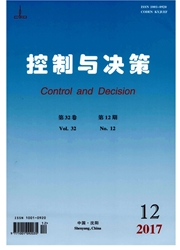

 中文摘要:
中文摘要:
This work addresses the saturation influence of control voltage on the occurring of self-excited vibration of maglev vehicle-bridge interaction system, which greatly degrades the stability of the levitation control, decreases the ride comfort, and restricts the cost of the whole system. Firstly, the interaction model of vehicle-bridge system is developed. Based on the interaction model, the relationship between the control voltage and vibration frequency is solved. Then, the variation of the effective direct component and fundamental harmonic are discussed. Furthermore, from the perspective of energy transmission between the levitation system and bridge, the principle underlying the self-excited vibration is explored, and the influence on the stability is discussed. Finally, in terms of the variation of the characteristic roots, the influence is analyzed further and some conclusions are obtained. This study provides a theoretical guidance for mastering the self-excited vibration problems.
 英文摘要:
英文摘要:
This work addresses the saturation influence of control voltage on the occurring of self-excited vibration of maglev vehicle-bridge interaction system, which greatly degrades the stability of the levitation control, decreases the ride comfort, and restricts the cost of the whole system. Firstly, the interaction model of vehicle-bridge system is developed. Based on the interaction model, the relationship between the control voltage and vibration frequency is solved. Then, the variation of the effective direct component and fundamental harmonic are discussed. Furthermore, from the perspective of energy transmission between the levitation system and bridge, the principle underlying the self-excited vibration is explored, and the influence on the stability is discussed. Finally, in terms of the variation of the characteristic roots, the influence is analyzed further and some conclusions are obtained. This study provides a theoretical guidance for mastering the self-excited vibration problems.
 同期刊论文项目
同期刊论文项目
 同项目期刊论文
同项目期刊论文
 Nonlinear Robust Observer-Based Fault Detection for Networked Suspension Control System of Maglev Tr
Nonlinear Robust Observer-Based Fault Detection for Networked Suspension Control System of Maglev Tr Adaptive backstepping control for levitation system with load uncertainties and external disturbance
Adaptive backstepping control for levitation system with load uncertainties and external disturbance 期刊信息
期刊信息
